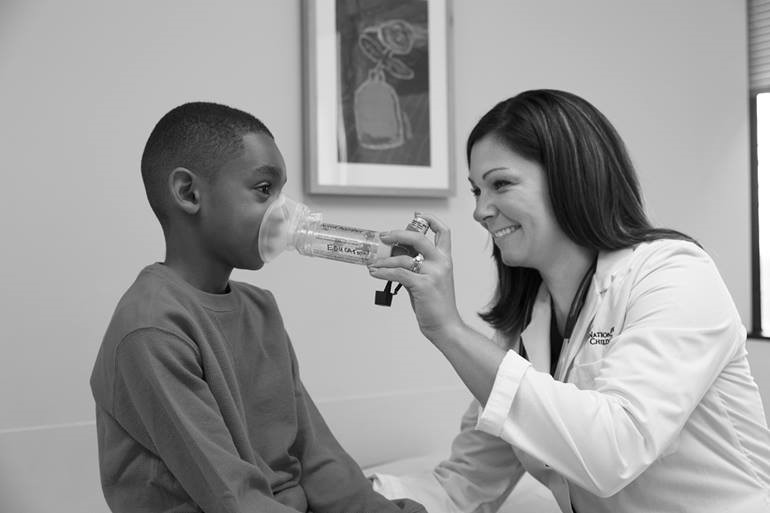What Treatment is Best for Preventing Kidney Complications in STEC Infections?
What Treatment is Best for Preventing Kidney Complications in STEC Infections? https://pediatricsnationwide.org/wp-content/themes/corpus/images/empty/thumbnail.jpg 150 150 Mary Bates, PhD Mary Bates, PhD https://secure.gravatar.com/avatar/c6233ca2b7754ab7c4c820e14eb518c8?s=96&d=mm&r=g- November 03, 2023
- Mary Bates, PhD
Nationwide Children’s Hospital is participating in a multicenter trial to determine the optimal way to treat children with high-risk STEC infections.
Shiga toxin-producing E. coli (STEC) infections can lead to systemic disease affecting multiple organ systems, including the kidneys. Up to 20% of children infected by high-risk STEC develop hemolytic uremic syndrome (HUS), a devastating and sometimes lethal illness with no treatment options.
There is a wide spectrum of care provided to STEC-infected children. Treatments range from a “wait and see” approach, with children managed at home, to inpatient admission for intravenous hyperhydration. Complicating matters is the fact that clinical presentation varies in these patients, with only some exhibiting obvious signs of dehydration.
“We do not know how best to treat children with STEC infections to prevent them from developing HUS,” says Courtney Coyle, MD, an attending physician in the division of emergency medicine at Nationwide Children’s Hospital. “Should we be giving them a lot of fluids regardless of how they present, or should we monitor them at home?”
To answer this question, Dr. Coyle and colleagues are participating in a multinational study comparing hyperhydration versus conservative fluid management of children with high-risk STEC infections. Nationwide Children’s is one of 26 pediatric institutions in the pragmatic, cluster-randomized, crossover trial. Dr. Coyle and colleagues are currently in the conservative treatment arm of the study, in which they are treating these patients as they have been, based on their clinical presentation. In 2024, the team will cross over to the other arm of the study, in which they will admit all high-risk STEC patients for hyperhydration.
The study’s primary objective is to determine the optimal way to treat children with high-risk STEC infections to prevent long-term kidney complications. The researchers also hope to identify biomarkers that may predict HUS. In addition, the study will help standardize care of these patients across pediatric centers.
Although initiated in the emergency department, this project brings together clinicians and researchers in several sub-specialties, says Diana Zepeda-Orozco, MD, a pediatric nephrologist and principal investigator in the Kidney and Urinary Tract Research Center within the Abigail Wexner Research Institute at Nationwide Children’s.
“We are communicating and providing feedback constantly and we all have the same goal, which is to figure out how to best care for these children,” she says. “I think that in addition to the study findings, we have built relationships that are improving care for our patients .”
Reference:
Freedman SB, Schnadower D, Estes M, Casper TC, Goldstein SL, Grisaru S, Pavia AT, Wilfond BS, Metheny M, Kimball K, Tarr PI, On behalf of the Hyperhydration to Improve Kidney Outcomes in children with Shiga Toxin-producing E. Coli infection (HIKO-STEC) Study Team. Hyperhydration to Improve Kidney Outcomes in Children with Shiga Toxin-Producing E. coli Infection: a multinational embedded cluster crossover randomized trial (the HIKO STEC trial). Trials. 2023;24: 359. https://doi.org/10.1186/s13063-023-07379-w.
About the author
Mary a freelance science writer and blogger based in Boston. Her favorite topics include biology, psychology, neuroscience, ecology, and animal behavior. She has a BA in Biology-Psychology with a minor in English from Skidmore College in Saratoga Springs, NY, and a PhD from Brown University, where she researched bat echolocation and bullfrog chorusing.
-
Mary Bates, PhDhttps://pediatricsnationwide.org/author/mary-bates-phd/December 27, 2016
-
Mary Bates, PhDhttps://pediatricsnationwide.org/author/mary-bates-phd/
-
Mary Bates, PhDhttps://pediatricsnationwide.org/author/mary-bates-phd/
-
Mary Bates, PhDhttps://pediatricsnationwide.org/author/mary-bates-phd/
- Post Tags:
- Emergency Medicine
- infection
- Nephrology






